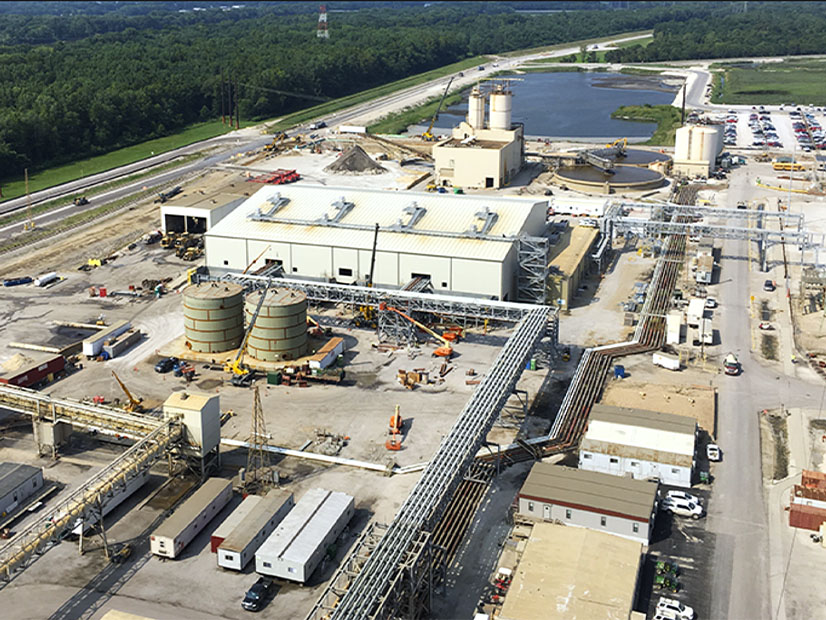Coal plants in the Central U.S. are elbowing out lower-cost, cleaner generation and have collected more than $1 billion in uneconomic payments over a three-year span, the Natural Resources Defense Council said in a new report.
NRDC secured Grid Strategies to conduct the report: “The Consumer and Environmental Costs from Uneconomically Dispatching Coal Plants in MISO,” which concluded uneconomic dispatch of coal plants remains a problem in MISO, where coal plants operate even when inexpensive wind and solar generation is available through self-commitment, self-scheduling and unrealistic market bids.
The report found that coal plants collected about $1.1 billion in uneconomic payments from 2021 to 2023 and forced 3.8 million MWh of renewable generation curtailment while emitting 5.2 million short tons of avoidable carbon pollution.
According to the report, coal plants in MISO are operating for extended periods when their marginal costs are run at a loss for extended periods of time while “crowding out cleaner, cheaper resources.”
NRDC said the problem was the starkest in Louisiana and Indiana, which accounted for $341 million and $338 million in economic losses, respectively. The report also called out North Dakota, where coal plants realized $120 million in unjustified payments from 2021 to 2023. Otherwise, the report found that coal generators in MISO states took in anywhere from $2 million to $69 million in uncompetitive payments.
NRDC said the worst offenders included Cleco’s Big Cajun II in Louisiana, Duke’s Gibson Generating Station in Indiana and NIPSCO’s R.M. Schahfer Generating Station in Indiana.
North Dakota was host to the most renewable energy curtailment to accommodate uneconomic coal generation, NRDC said, at 1,516 GWh in curtailments over the three-year period. Two other wind-rich states rounded out the most renewable curtailments: Iowa at 755 GWh and South Dakota at 671 GWh.
“Customers shouldn’t have to pay higher bills to keep dirtier, more expensive coal plants online,” Dana Ammann, policy analyst at the Sustainable FERC Project at NRDC, said in a press release. “Grid operators need to stop this inefficient practice and make these plants compete on a level playing field.”
NRDC said MISO should clamp down on coal operators’ “ability to supply power to the grid more or less at their own discretion — regardless of cost or rules.” The organization said power markets have an obligation to ensure the cheapest resources are run first.
NRDC recommended MISO resolve to decommit uneconomic generators, move to a probabilistic unit commitment system, design voluntary multi-day markets or look-ahead tools and work to ensure the accuracy between generator bids and units’ actual operating parameters. FERC also could “act on the basis that conventional generator self-scheduling and self-commitment result in undue discrimination against renewable resources,” NRDC said.
The organization further said state commissions should stop utilities from recovering uneconomic dispatch in costs and review fuel supply contracts to “ensure they do not perversely incentivize uneconomic dispatch.”
“When uneconomic coal plants displace wind and solar power, it sends a signal to reduce future development of those projects. Coal plant operators shouldn’t get a bailout from customers,” Ammann said.
MISO said it has not reviewed the findings or the report’s methodology.
“MISO works closely with our members, state regulators and our independent market monitor to ensure our markets are efficient,” spokesperson Brandon Morris said in an emailed statement to RTO Insider.




